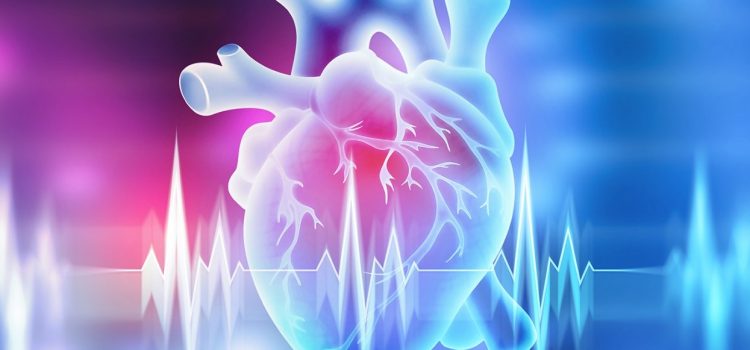
Heart disease remains one of the leading causes of mortality worldwide, claiming millions of lives each year. Early detection is crucial for effective treatment and improving patient outcomes. Traditionally, diagnosing heart disease has relied on a combination of patient history, physical examinations, and various diagnostic tests such as electrocardiograms (ECG), echocardiograms, and stress tests. However, these methods can sometimes be inadequate in identifying heart disease at its earliest stages. Enter Artificial Intelligence (AI), a transformative technology that is revolutionizing heart disease detection and offering new hope for early diagnosis and intervention.
The Power of AI in Healthcare
AI, with its ability to analyze vast amounts of data quickly and accurately, is becoming an indispensable tool in healthcare. Its applications range from automating routine tasks to providing decision support for complex medical diagnoses. In the realm of heart disease detection, AI is particularly promising due to its capability to process and interpret complex data patterns that are often beyond human comprehension.
AI and Heart Disease Detection
The integration of AI into heart disease detection involves several key technologies, including machine learning, deep learning, and natural language processing. These technologies enable AI systems to learn from large datasets, recognize patterns, and make predictions with a high degree of accuracy.
Machine Learning and Predictive Analytics
Machine learning algorithms are at the forefront of AI-driven heart disease detection. These algorithms can analyze patient data, including medical history, lifestyle factors, and genetic information, to predict the likelihood of developing heart disease. By identifying high-risk individuals, healthcare providers can implement preventive measures and closely monitor these patients, potentially averting the onset of heart disease.
Deep Learning and Image Analysis
Deep learning, a subset of machine learning, excels in processing medical images such as ECGs and echocardiograms. AI models trained on thousands of images can detect subtle abnormalities that might be overlooked by human eyes. For instance, AI can identify minute changes in heart structure or function that indicate the early stages of heart disease, allowing for timely intervention.
Natural Language Processing and Electronic Health Records
Natural Language Processing (NLP) facilitates the extraction of relevant information from unstructured data sources such as electronic health records (EHRs). By analyzing clinical notes, AI can identify symptoms and risk factors associated with heart disease that might not be immediately apparent. This comprehensive analysis enables a more holistic approach to patient assessment and risk stratification.
Real-World Applications and Success Stories
Several real-world applications of AI in heart disease detection underscore its potential to transform healthcare.
AI-Enhanced ECG Interpretation
AI algorithms have been developed to enhance the interpretation of ECGs, a common diagnostic tool for heart disease. These algorithms can detect arrhythmias and other cardiac abnormalities with greater accuracy and speed than traditional methods. In some cases, AI-enhanced ECGs have identified heart conditions that were missed by experienced cardiologists, highlighting the technology’s potential to improve diagnostic accuracy.
Wearable Technology and Remote Monitoring
Wearable devices equipped with AI capabilities are becoming increasingly popular for heart health monitoring. These devices can continuously track vital signs such as heart rate and rhythm, providing real-time data to healthcare providers. AI analyzes this data to detect irregularities and alert patients and doctors to potential issues before they escalate into serious health problems.
Predictive Modeling for Personalized Treatment
AI-driven predictive models are being used to tailor treatment plans for patients with heart disease. By analyzing individual patient data, these models can predict how a patient will respond to specific treatments, enabling personalized care plans that improve outcomes and reduce the risk of adverse effects.

Challenges and Considerations
While AI holds great promise for heart disease detection, there are challenges and considerations that must be addressed to fully realize its potential.
Data Privacy and Security
The use of AI in healthcare involves handling sensitive patient data, raising concerns about privacy and security. Ensuring robust data protection measures and compliance with regulations such as the General Data Protection Regulation (GDPR) is essential to maintain patient trust and confidentiality.
Clinical Validation and Integration
For AI tools to be widely adopted in clinical practice, they must undergo rigorous validation to ensure their accuracy and reliability. Moreover, integrating AI systems into existing healthcare workflows can be challenging, requiring collaboration between technology developers and healthcare providers.
Bias and Fairness
AI algorithms are only as good as the data they are trained on. If the training data is biased or unrepresentative, the AI system may produce skewed results. Efforts must be made to ensure that AI models are trained on diverse datasets to avoid perpetuating existing healthcare disparities.
The Future of AI in Heart Disease Detection
As AI technology continues to evolve, its role in heart disease detection is expected to expand. Future developments may include the integration of AI with genomic data to identify genetic predispositions to heart disease, as well as the use of AI to predict disease progression and response to treatment.
Moreover, the ongoing advancements in AI explainability and transparency will enhance clinicians’ understanding of AI-driven insights, fostering greater trust and collaboration between humans and machines in healthcare.
In conclusion, AI is poised to play a pivotal role in detecting heart disease earlier than ever before, offering new opportunities for prevention and treatment. By harnessing the power of AI, healthcare providers can improve diagnostic accuracy, personalize treatment plans, and ultimately save lives. As we continue to navigate the challenges and opportunities presented by AI, its potential to transform heart disease detection and healthcare as a whole remains immense and promising.










